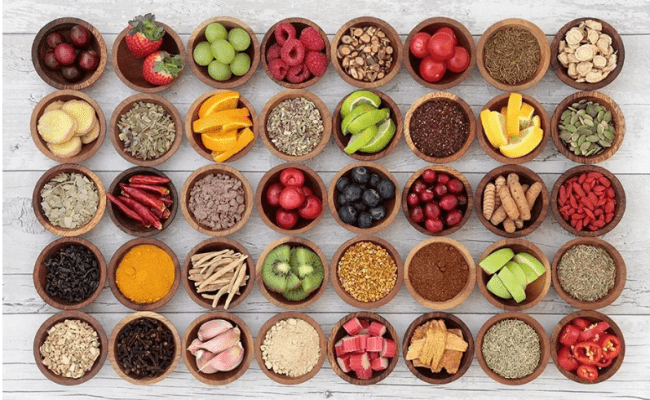
Research has suggested that following a vegetarian diet may lead to a longer life expectancy, but does this mean we should all be going veggie or is there a place for meat in our diets too?
The evidence
Numerous studies have suggested that a vegetarian diet may be beneficial in reducing risk of diseases such as type 2 diabetes, hypertension, osteoporosis, heart disease, dementia and rheumatoid arthritis, so it comes as no surprise that there is also suggestion that those following a vegetarian diet have less risk of dying of any cause than those who consume meat on a regular basis.
The main study supporting this theory was carried out in over 73,000 Seventh Day Adventists, a group that encourages minimal consumption of meat products, with results showing that vegetarians or those that consumed meat on an infrequent basis had 12% less risk of developing a disease that would kill them.
The study was carried out over a five year period, in which over 2,500 of the original population died, with the death rate of those consuming meat appearing significantly higher than that of the different sub groups of vegetarians, including complete vegans, who consumed no animal products whatsoever, pesco-vegetarians, who consumed fish and lacto-ovo-vegetarians who still included dairy products and eggs as part of their diets.
The different classes of vegetarians were also considered separately and it was found that when compared to non-vegetarians, pesco vegetarians had a reduced risk of heart disease, non-cancer and non-cardiovascular forms of death, lacto-ovo vegetarians had a lower risk of all causes of mortality and vegans had a reduced risk of non-cancer and non-cardiovascular related death. Overall, it seemed that the risk reduction was greater in men than in women.
The results were adjusted for potential confounding factors than may have had an effect on lifespan, such as smoking, exercise levels and education, however, due to the nature of the study it is not possible to come determine cause and effect completely and there is the possibility that other factors may have effected results slightly.
For example, vegetarians may often follow healthier lifestyles in general than non-vegetarians and people from the particular group followed in this study followed a specific lifestyle, differing from other members of the population.
For parts of the analysis in the study, those who consumed meat and fish, but only once a week or less were classed as vegetarians, suggesting that perhaps low meat consumption may be just as effective as complete vegetarianism.
A review of six cohort studies investigating the relationship between meat consumption and longevity concluded that a lifestyle pattern which involved consuming meat less than once per week may be associated with longer lifespans in Europe and the U.S. However, not all studies showed significantly reduced risk of death and there was once again debate as to the control of outside factors and exactly what should be classified as vegetarian eating.
In conclusion, there are definitely health benefits of vegetarian style eating, but the extent as to which animal products, fish and even meat can still be a part of this diet whilst maintaining the same advantages is not clear.
Meat and life expectancy
Recent research has suggested that high meat intake; particularly of processed meats that are high in saturated fats, tend to increase risk of numerous lifestyle diseases.
However, there is also plenty of evidence suggesting that fish intake is beneficial for health and that higher protein diets including lean meats may also have some health advantages, so it remains to be seen as to whether complete veganism, or strict lacto-ovo vegetarianism is necessary, or if a well-planned healthy diet featuring lean meat, fish or animal products may still have the same benefits.
Health benefits of vegetarian eating
A well-balanced vegetarian diet has numerous health benefits, including a high fiber content, high levels of vitamins and minerals, low saturated fat content and easy to digest proteins. Vegetarian diets are not necessarily lower in calories and fat than diets containing meat, however, if the focus of the diet is on fresh, natural foods, rather than processed varieties, it is often a lower calorie diet.
Overweight and obesity are contributing risk factors to a large number of lifestyle diseases, so if this is less prevalent due to lower calorie intake it is likely to offer a protective effect against disease.
Eating for a long and healthy life
Although there is a huge amount of controversy in the world of nutrition research and advice changes almost daily, there are a number of foods that are generally accepted as beneficial for reducing risk of disease and those that are thought to enhance it.
Foods to choose:
- A wide variety of fresh fruit and vegetables
- Oily fish
- Wholegrain , nuts and seeds
- Legumes such as beans and lentils
- Lean meat in moderation
- Unsaturated fats such as olive oil
- Spices and herbs (excluding salt)
- Water
Foods to avoid
- High salt foods
- High sugar foods, particularly in processed forms
- Fried foods
- Processed food
- Refined carbohydrates
- High fat meats
- Soda or other high sugar drinks
- Saturated or trans fats such as those found butter or some margarines and processed foods
References used in this article










